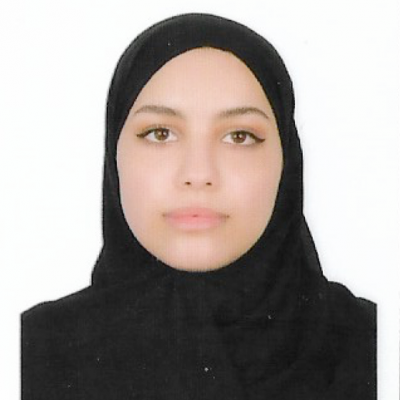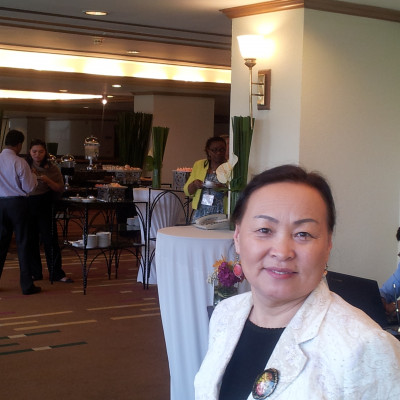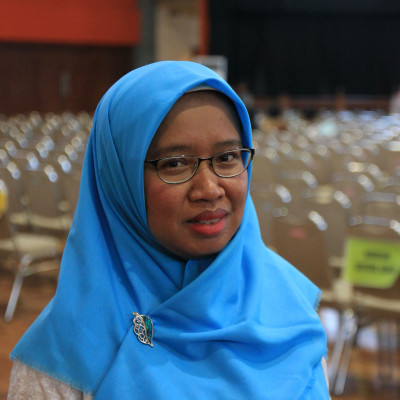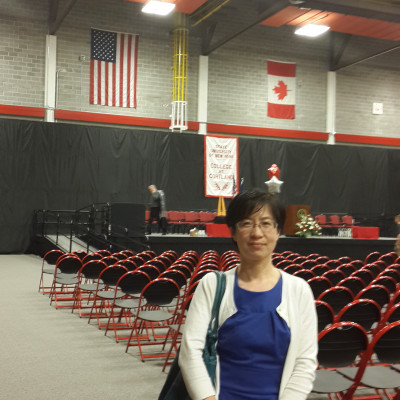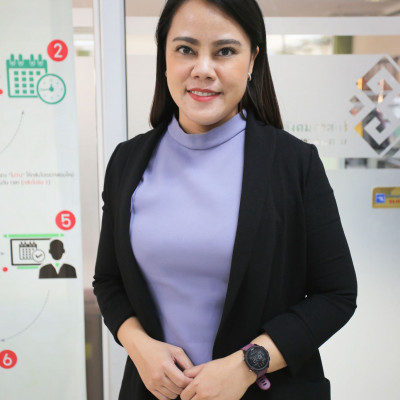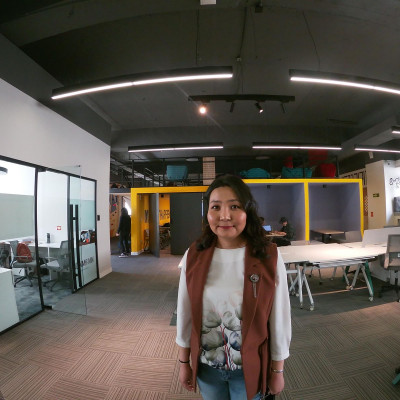Sessions / Session
ERF Board meeting #1662
In this session the ERF Board will meet to discuss matters related to the running of the Extensive Reading Foundation. Affiliate Chairs are expected to attend and the session is open to the public.
Exploring Extensive Reading Practices in Arabic #1607
During this session aspects of an action research project encouraging students to engage in extensive reading (ER) practices in Arabic that took place online will be discussed. The session will review some of the issues students face when reading in Arabic and showcase how the researchers sourced appropriate free online reading materials to include in the project. The online ER activities to engage students in reading will also be explained.
Extensive Reading is the Key for Better Language Development #1538
Why is extensive reading important for language learning? How can students be motivated to read for pleasure? How can instructors enhance a student’s incidental language learning through extensive reading? Join us to learn answers to these questions.
Contradictory Info on Graded Reader levels. Which do we Believe? #1569
Graded Readers are supposedly "graded" according to their difficulty. While the grading may be internally consistent for a specific publisher, comparing even a few of the most popular series shows that books with identical headword counts can be labelled at widely different levels. Background info and suggestions will be offered.
Extensive Reading Using Authentic Materials with Elementary and Secondary EFL Students #1556
This presentation will review an 8-week study that used authentic digital books with elementary and secondary students learning English in a foreign language setting. Participants were at the basic levels of CEFR. Study procedures and outcomes will be discussed.
Activating Language Communication Classes through Extensive Reading Channels in a Pandemic Hybrid Setting #1555
In its second phase of implementation, in a pandemonium set up that can even curtail teachers' and students' motivation, ER, being adaptable, thrives and can support the primary curriculum to engage learners in language communication activities. Are you new to ER or contemplating implementing it? Then come and join!
Active Learning in an Online Setting Utilizing Extensive Reading and Digital Storytelling #1588
In this paper, a classroom practice is reported in which extensive reading was combined with digital storytelling. It was conducted in an EFL reading class at a national university in Japan. The objective was to provide learners with an opportunity of extensive reading, story analysis, and active learning.
Current Issues and Development of Graded Readers for Japanese Language Learners #1543
In this presentation, we will first give an overview of the currently available graded readers for Japanese language learners and point out some of the problems. Then, we will explain how we have developed our new graded readers for beginning Japanese learners.
Action Research into Reading Activities for Building Motivation and Skills #1609
This short presentation reports on action research into the baseline reading profiles of students and factors that may have impacted on learners’ past reading experiences. A reading project with graded reading, timed reading, and Reader’s Theatre was introduced to build skills and motivation for low proficiency university freshmen in Japan.
Extensive Reading Habits and Attitudes of EFL Learners: the case of Lower Secondary Schools in Ethiopia #1658
Reading literacy is significant for learners’ academic success, and high levels of reading literacy can be established through strong engagement in extensive reading. This study, thus, investigated lower secondary school learners’ habits and attitudes toward extensive reading. The data were collected from 377 learners in North Wollo Zone, Ethiopia, using a survey questionnaire. Descriptive (frequency, percentage, mean, standard deviation) and inferential (independent samples t-test) statistics were used to analyze the data. The findings of the study indicated that majority of the learners’ habit of extensive reading was poor: a great majority of them did not read any book over the last year, and most of them did not read for pleasure every day at all. The finding of the study also showed that most of the learners’ attitudes toward extensive reading was not favourable, and they mostly read for academic purposes. It was also found that there was no significant difference between gender and age of learners regarding their extensive reading habits and attitudes. Lack of appropriate reading materials, low English ability, and lack interest in reading are the major factors that affect learners’ leisure reading habits. Based on the results, it can be suggested that integrating extensive reading programme (accessibility of a wide range of interesting reading materials based on the learners’ linguistic level and interest) in input-poor English as a Foreign Language contexts like Ethiopia is essential to promote learners’ extensive reading habits and develop positive attitudes toward (extensive) reading.
Experiencing ER in Thailand #1659
Extensive Reading has yet to gain popular support in Thailand and is not widely implemented at the high school level. This presentation will describe the realities of setting up, running, and managing an Extensive Reading Project and integrating it into the curriculum to form a fundamental base in the instruction of English. After 5 years we will demonstrate the scores our students achieve in comparison to other Thai schools in the national O-Net tests, and progression over the years through the annual Oxford Online Placement Test that students take. We will conduct a survey about student attitude toward reading at the end of July 2021 just before the conference to give an up-to-date reflection from students about their feelings toward reading in general and extensive reading in particular. There will also be a reflection from teachers about implementing XReading as a tool when the COVID pandemic forced a move away from physical copies of books and the use of the MReader website.
Using graded readers to supplement courses #1704
This presentation will provide an overview of Halico Online and how five graded readers from the 10-ways-to series were used to supplement a presentation and debate course at a Japanese university.
The Experience Sharing Practices of Extensive Reading Teachers in Mongolia #1690
A total of 50 secondary school English Teacher involved in Experience sharing practical training to expand their extensive reading performances at 17 different provinces and districts of Mongolia. These participants, who have been teaching English at public and private schools were asked to 5 different exercising group “How to invest extensive reading in the remote country local school”, “How to combine the curriculum and extensive reading activities”, “How to motivate the graded readers”, “How to invest extensive reader at local school” and “How to integrate English readers to other subjects at school”. For the exercise groups, the instruction time was four-day-experiments for seeking the best practices how to expand Extensive Reading approach among other English teachers those not using extensive reading tools. Four-day-experience sharing practical training later, listened 15-minute micro training presentations from each group and questions, clarification and feedback on each presentation. The major findings are as follows: 1) Extensive reading invested by local school alumna, 2) Extra curricula and school activities maximized by extensive reading clubs. The results of this experience sharing, 14 the best practitioners were recognized to coach other new instructors to perform extensive reading approach in Mongolia.
Literature in secondary EFL class: Case studies of four experienced teachers’ reading programmes in China #1579
To explore the integration of literature into secondary EFL teaching, this exploratory multiple case study investigates four reading programmes implemented by experienced teachers in Chinse secondary schools. Data were collected from teachers’ reflective journals, semi-structured interviews, and related documents and artefacts. Implications are discussed in relation to teacher education.
Japanese University Students’ Attitudes Towards Extensive Reading in the Digital Age #1572
With the ubiquitous use of digital devices, it would seem that a technological solution to ER may be just as beneficial as a paper-based approach. Hence, this mixed-methods research project looks at how first-year Japanese EFL university students experienced a yearlong, technologically-assisted extensive reading curriculum in terms of their reading attitudes.
An Investigation of EFL Students' Perceptions of their Extensive Reading and Flow Experience #1560
This study investigated the students’ perception of their extensive reading and flow experience (FE) including conditions that enabled FE.
Welcome to LoungERs - an informal monthly chat about ER topics #1657
Major events such as ERAW and ERWC are immensely stimulating for attendees. In addition to attending Insightful presentations and workshops, attendees have chances to meet and talk with other educators using ER from far and wide. These chance conversations can spark new lines of thinking and areas of collaboration. The coronavirus pandemic has taught us that technology can bring us together despite being separated by physical distance. In 2020, the JALT ER Special Interest Group started a monthly informal gathering using Zoom meetings. The monthly meetings let friends of ER meet a little more regularly. People who come by share ideas, talk about favorite books, or sometimes discuss research. We aim to keep things informal, and building camaraderie is just as important as deepening our extensive reading knowledge. Please come by, and learn more about how you can join in.
Setting Extensive Reading Goals to Achieve Reading Rate Gains #1590
Beglar and Hunt (2014) suggested that completing the equivalent of 7,200 standard words of extensive reading per week will facilitate substantial reading rate gains. The goal of this study was to investigate the feasibility of such a goal for learners of Japanese. Results, pedagogical implications, and suggestions will be discussed.
Developing Reader Identity Through Xreading: A Case Study of EFL University Students’ Perceptions #1589
This presentation addresses how Indonesian university students perceived themselves developing their reader identity through xreading and its follow-up activities. The presentation uses the perspective of literacy as social practice. Preliminary data from survey indicates that students' constructions of reading and being a reader have evolved throughout the online extensive reading.
A Study on the Practice of Extensive Reading for EFL Early Childhood Education Majors in Japan amid the COVID-19 Pandemic #1578
This paper aims to report findings of a survey of English language teaching including extensive reading for early childhood education university students in Japan amid the COVID-19 pandemic. The findings are based on the identified correlations between online and face-to-face instruction modes in the teaching.
A Case Study of a Happy Retired Life from Extensive Reading and listening #1606
The purpose of this study is to investigate what motivates the participants who are in their 50s, 70s, and 80s to continue ER/EL for two to five years. How ER/EL in English stimulates them, and how their lifestyles have changed will be included in the presentation.
Academic Dishonesty on Xreading: A Cautionary Tale #1603
Xreading is very useful for assessing students’ progress, but as with any digital technology, teachers need to be aware of unscrupulous students who may try to cheat. The presenters will provide useful tips to minimize cheating, detect cheaters, and effective strategies to deal with students who have been caught cheating.
Japanese Extensive Reading: Aesthetic and Efferent Engagement of Learners with Texts #1573
Grammar translation teaching styles in Japanese courses influence Japanese learners to conceive of reading as translating the propositional content of texts. However when reading extensively, learners may adopt different reading styles and patterns of behaviour, indicating that ER can enable students to develop more natural, normal ways of reading.
Using a Chatbot to Promote Thai Students' Basic Reading Skills #1539
In this paper, I explain what a conversation agent (chatbot) is and demonstrate how a story can be adapted and be made flexible through the use of a Dialogflow conversation agent. I shall also present the feedback and opinions of the students who have interacted with the agent on a voluntary basis. Recommendations will also be given.
The Experience of a Newcomer: Extensive Reading Program Setup – From Zero to 5,000 Readers #1574
In Thailand, implementing an extensive reading program at a university level is relatively new, especially with an online library integration. This presentation focuses on the extensive reading program implementation using the Xreading virtual library at a large public university in Bangkok. The steps taken, the challenges faced, and the lessons learned will be discussed.
X-Reading: The Potential of Integrating Extensive Reading and Students’ Critical Thinking #1604
This paper intends to identify the correlation between ER and students’ critical thinking. The participants of this research are the first-year students of English Education study program in Universitas Negeri Surabaya who take part in ER program. The ER program implemented for students is X-Reading, an online extensive reading website with learning management system (LMS) that provides hundreds of graded readers. The data are collected from the recorded time spent by students on X-reading activities and questionnaires based on students’ perception on how extensive reading contributes to their critical thinking skill. The data are analyzed using Product Moment formula and Coefficient Determination to find out to which extent X-Reading contributes to students’ critical thinking skill.
How Readers Are to Be Assisted for Pleasure Reading: A Choice of Assistance to Promote Extensive Reading #1580
This study examines the relationship between reading quality and the way readers monitor their progress. Learners through ER often feel the dilemma of quiz taking or pleasure reading. In this study, learners who read for pleasure demonstrated a better reading habit than those who read for quizzes.
An Investigation on Indonesian Freshmen's Vocabulary Knowledge #1602
The present study investigated two groups of freshmen’s vocabulary levels pre- and post-Extensive Reading programs in their respective universities.
The application of the Coverage Comprehension Model #1551
The Coverage Comprehension Model (CCM) describes how learners who know >95-98% or more of the tokens within a text are likely to comprehend it. This presentation explains how the operationalization of the CCM is based on four assumptions that research suggests are incorrect. Teachers and researchers will benefit from understanding this.
Talking past each other: Chinese EFL teachers’ understanding of Extensive Reading #1540
This presentation reports on findings from an investigation into twenty-four Chinese EFL teachers’ understanding of Extensive Reading (ER). Despite their positive attitude toward ER, results revealed that these teachers’ definition of ER was different from that of researchers in the field of ER.
What ER brings out in us: a comparative study of two Thai universities #1660
The study aims to investigate whether extensive reading (ER) can promote university students’ English reading motivation and foster positive attitude towards reading in English. It further explores the teachers’ perceptions of and the challenges faced in the implementation of ER activities. An ER program was held for eight weeks at two public universities in Thailand. Teacher’s observation and student’s log were applied to collect some insightful data. After the ER program ended, focus group interview were conducted with some students randomly and six lecturers from the participating schools who were involved in the ER program. The majority of the students from both institutions expressed positive attitudes towards the ER program. However, students with different knowledge levels of English expressed diverse opinions regarding ER practice and expectation towards English test achievement. While most of the lecturers realized the usefulness of ER, some of them were still worried about the time consuming and extra workload. Although the reflection on ER was varied in some aspects, there was a consensus about the benefits of ER in promoting English language learning among learners and teachers. Therefore, the study suggested to some degree the plausibility of implementing ER in the country like Thailand where ER is not well known.
ERF Affiliates Report #1656
This is an open session for ERF Affiliate members, those considering starting and ERF Affiliate, and the general public. In this session, the ERF Affiliate liaison will then present the ERFs vision for the future. Then, one member from each ERF affiliate is expected to present a 3-5 minute report on their activities since the last meeting and will mention any upcoming events. Affiliate representatives will be given time to discuss together about how to cooperate in the future, and to ask questions. It is hoped that the Chairs of each affiliate would then give some advice to those who are hoping to form an Affiliate.
Get to know your local ER Association #1685
This session will be an open platform for attendees to learn about their local ER associations, in many regions of the world. Come and join them to learn more about the ER community in your area. Each association will have their own breakout room. These include PERC China (Publink Extensive Reading Club), MERA (the Mongolian Extensive Reading Association), IERA (the Indonesian Extensive Reading Association), JALT-ERSig (the Extensive Reading Special Interest group of JALT), TEERA (the Taiwan English Extensive Reading Association); MENA (the Middle-east and North African Extensive Reading Association), KEERA (the Korean Extensive Reading Association); JERA (the Japan Extensive Reading Association); and the forming groups in Thailand, Vietnam, Ethiopia, the UK. There will also be a breakout room for people interested in starting their own ER Association. Some ERF board members will be there to advise.
If not now, when? It’s Thailand’s turn to be on the extensive reading map! #1664
We are well aware that providing opportunities to our students to read extensively for pleasure can help them develop their language proficiency. It is, however, quite unfortunate that such an awareness is rather limited to only a few groups of teachers. So far in Thailand, the implementation of ER programs has been an individual teachers’ effort. It is likely that the existence and continuation of ER will remain at the individual teachers’ level as long as there is no official association or organization that consistently promotes ER throughout the country, and gathers ER advocates to help push ER to be integrated as part of the formal curriculum throughout Thailand. Although several attempts to convince university lecturers to form an official affiliate in Thailand have been made, up to now an ER association has not been set up. However, this is going to change. In this presentation, we will unveil the vision of the soon-to-be Thailand Extensive Reading Association (TERA) and invite ideas from the audience on how to build interest in ER in Thailand.
Get To Know PERC #1688
PERC up with Extensive Reading
Get to Know MENA ERF (Middle East and North Africa) #1689
During this session, representatives from the MENA ERF will provide an overview of their activities and the extent to which others are welcomed to become involved.
Get to know TEERA (Taiwan English Extensive Reading Association) #1691
An informal discussion about how to implement and assess an ER program.
Get to know MERA (Mongolian Extensive Reading Association #1767
Meet the Mongolian Extensive Reading Association.
Student Reactions to Extensive Listening with Class Readers and a Virtual Library #1577
This presentation will cover how Japanese university students responded to a year-long extensive listening curriculum. This presentation will be of interest to teachers who are considering either implementing extensive listening, using a set of class readers, and/or using a virtual library such as Xreading.
What Makes a Reader Read On? #1553
How to write a graded reader that engages and encourages the reader to read on.
Raising the Voices of Young Learners: Experiences in Reading for Pleasure #1552
This presentation reports the findings of a qualitative PhD study carried out with young learners. Extensive reading, reading circles and reading aloud were implemented. Action research was used to examine the L2 reading process. Findings show the participants’ L2 reading accounts.






